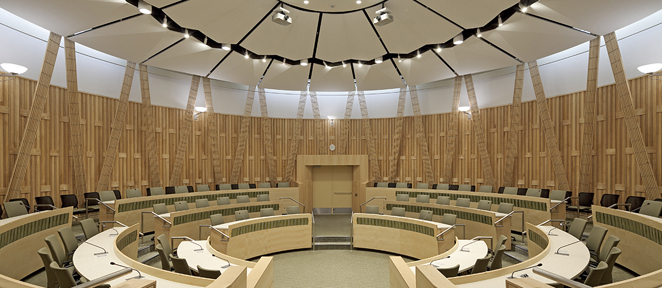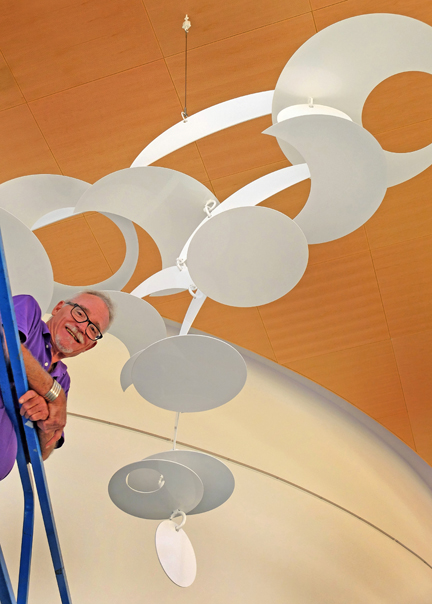
The Fulginiti Pavilion for Bioethics and Humanities
Perhaps the best description of the Fulginiti Pavilion, written by Denver Post art critic Ray Rinaldi, is “The presence of a strong, small building in a rising city of behemoths changes the whole place… the place itself breathes and it also provides breathing space, a rhythm, for the overall campus.” Read the full article>>
The Fulginiti Pavilion for Bioethics and Humanities is situated at the north end of the Boettcher Commons, and the centerpiece of the facility is the Gossard Forum a unique in-the-round auditorium seating 140. The Forum is a specialized space to elevate and encourage deliberation of the most pressing moral healthcare issues we face, both within our campus community, as well with our regional and national communities.
The Gossard Forum provides an intimate setting which is not oriented to a single individual. Instead this space is designed to be equally oriented for all participants, and encourage active discussion. We bring people of different perspectives together to engage in discourse, to seek common ground, and to move forward in addressing the ethical issues facing healthcare today.
The Pavilion also serves as a space for reflection and inspiration featuring a 1,000 square foot art gallery, a grand piano in the lobby, conference rooms and comfortable seating areas. The building houses faculty and staff of the Center for Bioethics and Humanities on the 2nd floor, and the Interprofessional Education and Development Program on the lower level. Read the Denver Post article about the Pavilion.
The 8 million dollars to build the Fulginiti Pavilion for Bioethics and Humanities came from the generosity of many private donors and Foundations, as well as a small portion from the sale of the Given Institute. The support of these individuals and organizations is recognized by a display in the lobby of the Pavilion.
View a video about the building of The Fulginiti Pavilion.
The Fulginiti Pavilion is a Gold LEED Certified, energy efficient facility.

Sculpture by Robert Delaney

Bright Idea, a sculpture in memory of Vincent Fulginiti, MD, models the work of the university; thinking, talking and discovering, as well as the vision of Dr. Fulginiti, who has been described as someone who viewed situations from multiple perspectives, and who balanced the ethical, practical and the aesthetic.